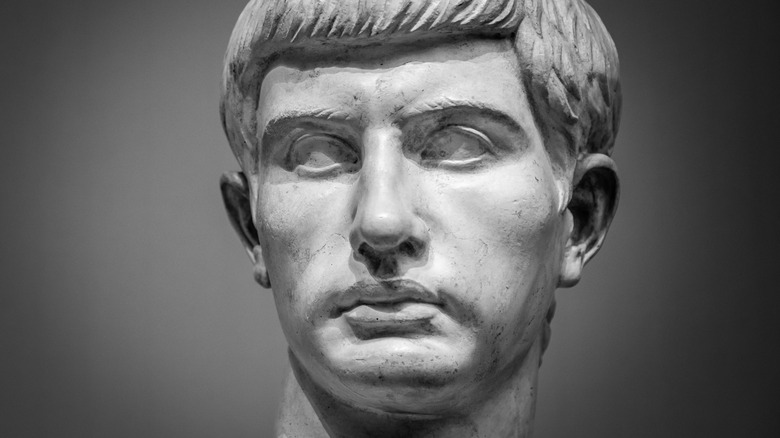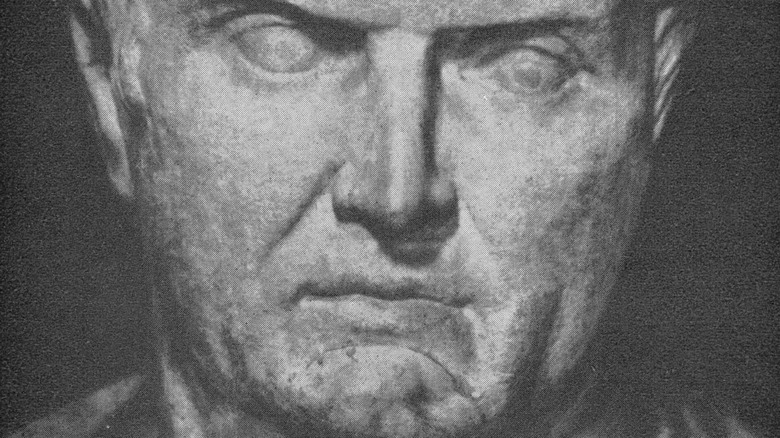How Did Brutus Die?
Most remember ancient Roman general Decimus Junius Brutus Albinus — better known simply as Brutus — for who he killed, or rather, who he played a part in the killing. Brutus was a leading conspirator in the assassination of Julius Caesar in 44 B.C. (via Britannica). According to the Royal Shakespeare Company, in fact, Caesar's final words as dramatized by the bard were "Et Tu, Brute?" — the line referring to the Roman leader's close friend, Brutus, plunging the mortal blow to end his life.
Far fewer people, however, stop to think about how Brutus, himself, ended up dying. Following Caesar's assassination, the Roman Empire became embroiled in a civil war. Brutus — along with Gaius Cassius Longinus, who also had a hand in the killing of Caesar — commanded the Roman Republican forces as they sought to retake Rome after being driven to Greece by Mark Antony and Octavian (later to become Emperor Augustus). The pair was run out of Rome due to public outrage on account of Caesar's killing.
According to History, these two warring armies would meet one last time at Philippi, Greece in October 42 B.C. The outcome of that conflict would set the course for the remainder of Brutus' life.
Brutus was surrounded on all sides
According to History, Brutus' army was soundly defeated at Philippi by forces commanded by Antony and Octavian. Longinus was already on the losing end of a battle with Antony and Octavian that same year, and as a result, he took his own life. The Roman Republican army would clash one last time with Antony and Octavian, however, this time, under the command of Brutus.
Following the success Octavian and Antony had against Longinus, Brutus mounted a counter-assault but the conditions were perilous. This prevented the cavalry from playing a part in the conflict, and so foot soldiers fought hand-to-hand, according to Britannica. Brutus would retreat, along with a good portion of his army, but soon, Antony's cavalry hemmed in their encampment. Facing defeat, Brutus killed himself, and his troops surrendered.
Although they emerged that day victorious, the outcome for Octavian and Antony wasn't much better than the fate of Brutus and Longinus. The two military leaders would eventually turn against one another, Octavian ascending to Emperor, and Antony himself committing suicide a short time later, changing the course of Roman history for good, according to Manchester Historian.

